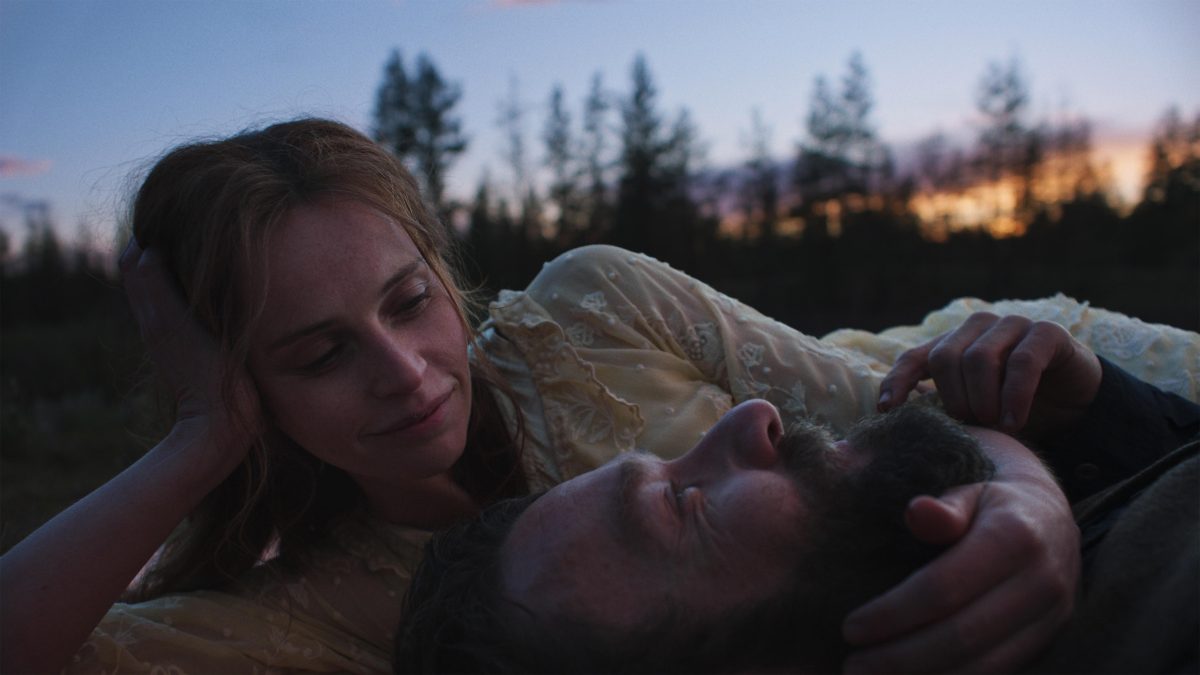Let’s just get this part out of the way quickly: Boy, “Train Dreams” sure does look like a Terrence Malick film, doesn’t it? Not to slight fellow critics who’ve made the comparison at any point in the last 10 or so months. With this film’s particular sonic and visual grasp of the intimidating and poetic splendor of America’s seldom-inhabited plains, such a comparison is more than obvious—it’s, arguably, more or less inevitable.
More than superficial similarities, Clint Bentley’s sophomore feature shares a deeper connection with Malick’s most revered efforts (read: any film of his that shifts its focus towards the deceptive beauty of nature rather than that of his leading actors’ faces).
Few other filmmakers have so vividly captured the disarming elegance of America’s sprawling frontiers at the same time that they’ve managed to so soberingly demythologize the place of (white) man in the destitution of that space that would follow. “Train Dreams” follows suit with its own clarity towards the precarity of the natural order, though Bentley’s vision is one whose sense of solitude goes well beyond internal monologuing along a calming stream peppered with the ashes of memory.
Don’t assume that means that “Train Dreams” is bereft of disembodied voiceover, though. On the contrary, Bentley’s rendition of the United States in the vestiges of its frontier days is more disembodied than anything Malick has ever done, with the voice of Will Patton guiding us through the life and times of Robert Grainier (Joel Edgerton). Working as a logger and railwayman through the First World War and the years thereafter, Grainier’s work takes him far from the Idaho settlement he calls home, an increasing burden on the humble handyman as he finds the love of a young and regal Gladys (Felicity Jones).
The strength of their infatuation motivates them to build a cabin right by the stream, which becomes the picturesque ecosystem in which to raise their infant daughter, Katie. Work, however, is tough to come by—especially in the years following the war—and Robert’s increasing absences from his new family prove to be just as testing as the sights of human apathy he sees during those very departures.

Also Related: All Terrence Malick Movies, Ranked
Not to suggest that the beauty of “Train Dreams” is entirely deceptive, as Grainier’s modest, back-breaking travels find lifelong impressions made in the unlikeliest of places. Sometimes, it’s the only words he’s ever heard from one of his coworkers lamenting the lack of quiet that stick with him. Sometimes, it’s the comforting sagacity of a burly explosives man (a near-unrecognizable William H. Macy). But sometimes, it’s the witnessing of a Chinese railworker being whisked off and thrown over the side of an unfinished bridge for no discernible reason that comes to stick in Grainier’s mind.
Moments like these pass, but their impact remains lodged in his soul, which is where Bentley’s quiet critique of American expansionism makes its mark—particularly at the turn of the 20th century with the westward development of the railway system. Few industrial developments have simultaneously symbolized vast American progress and the disdainful treatment of the migrants who gave their labor and their lives to bring that progress to the fore, and “Train Dreams” emphasizes this imprint without harping on it too aggressively, thanks in no small part to the film’s centralization of a guilt-ridden bystander.
Edgerton, to that end, offers perhaps the most unsuspectingly devastating work of his career, letting his humbly expressive face carry between its increasing wrinkles the uncertainty that lies buried in a reflection he can only manage to see once a decade—be that as a matter of opportunity or waning personal strength. Every moment Edgerton spends slumped against a rotting tree trunk or wading his fingers through the wind as though Gladys’s hair lies just at the end of their tips only serves to punctuate the incongruity of this man in a space that has provided the only sense of stability he’s ever known.
Bentley and his co-writer, “Sing Sing” director Greg Kwedar, structure “Train Dreams” with a loose but easily traceable chronology that foregrounds the sense of listlessness that lingers across Grainier’s consciousness, as if following a stream that keeps shifting direction, or a locomotive that keeps stalling along its freshly lain tracks, inviting the flora it’s destroyed to grow right back between its gears. There are times when we all want to stop and gaze upon the untouched vistas of the world around us, imagining ourselves at the center of this virginal grove. The longer we stay to envision this life, however, the less there is untouched for us to exalt in the first place.





![The Scarecrows (Les épouvantails) [2019]: ‘Venice’ Review- The Horrors of Survival](https://79468c92.delivery.rocketcdn.me/wp-content/uploads/2019/09/The-Scarecrows-LES-EPOUVANTAILS-1-highonfilms-768x494.jpg)


